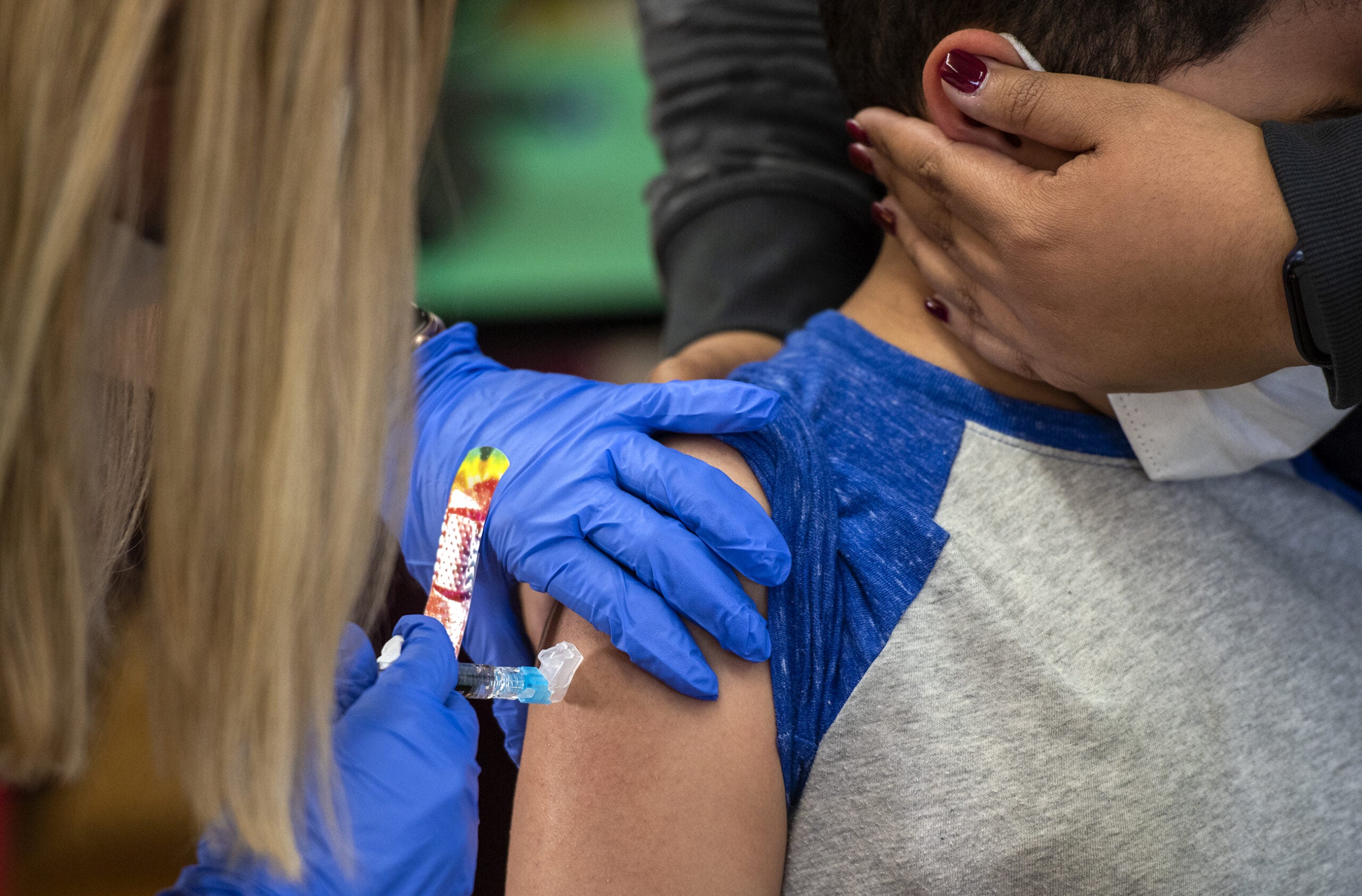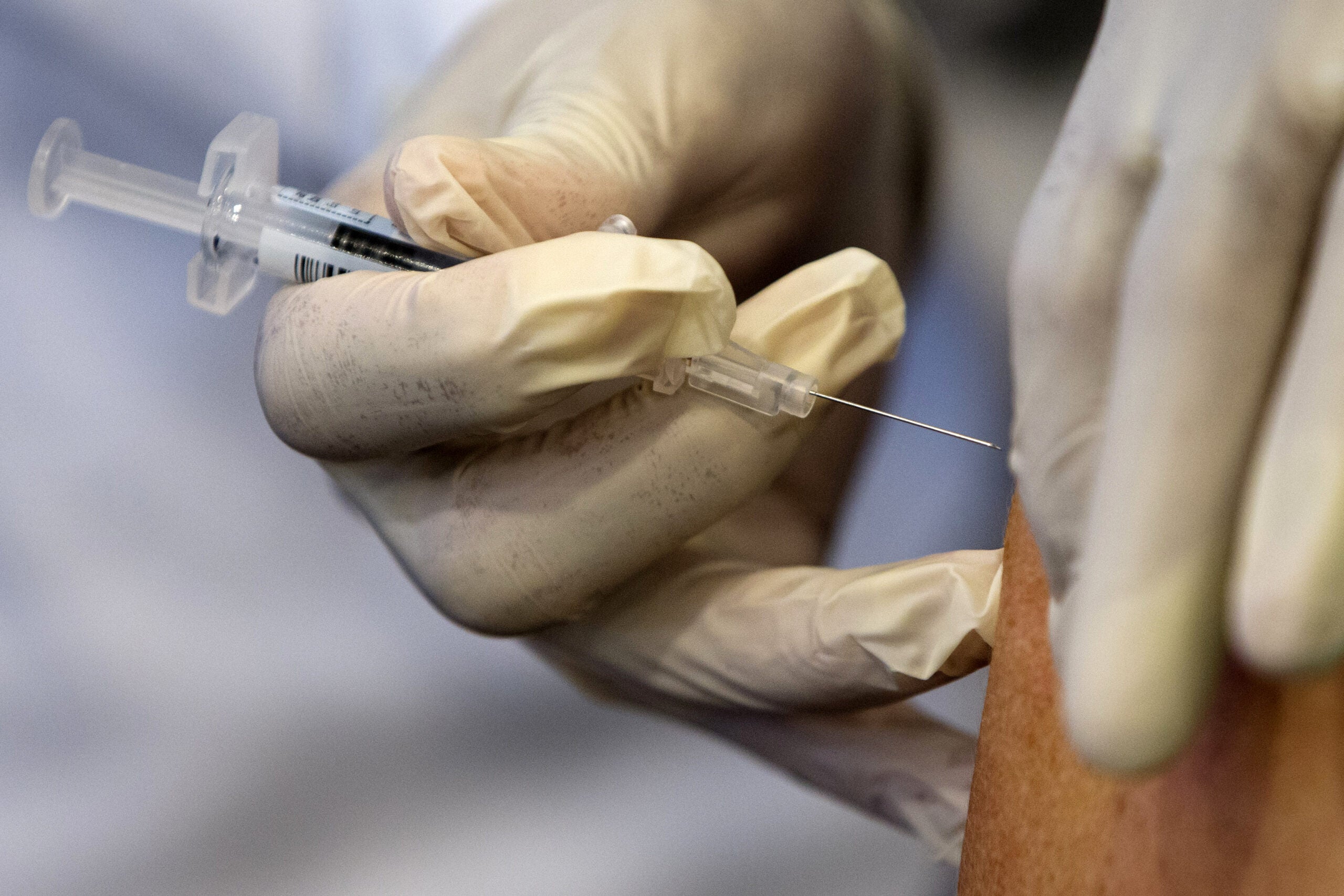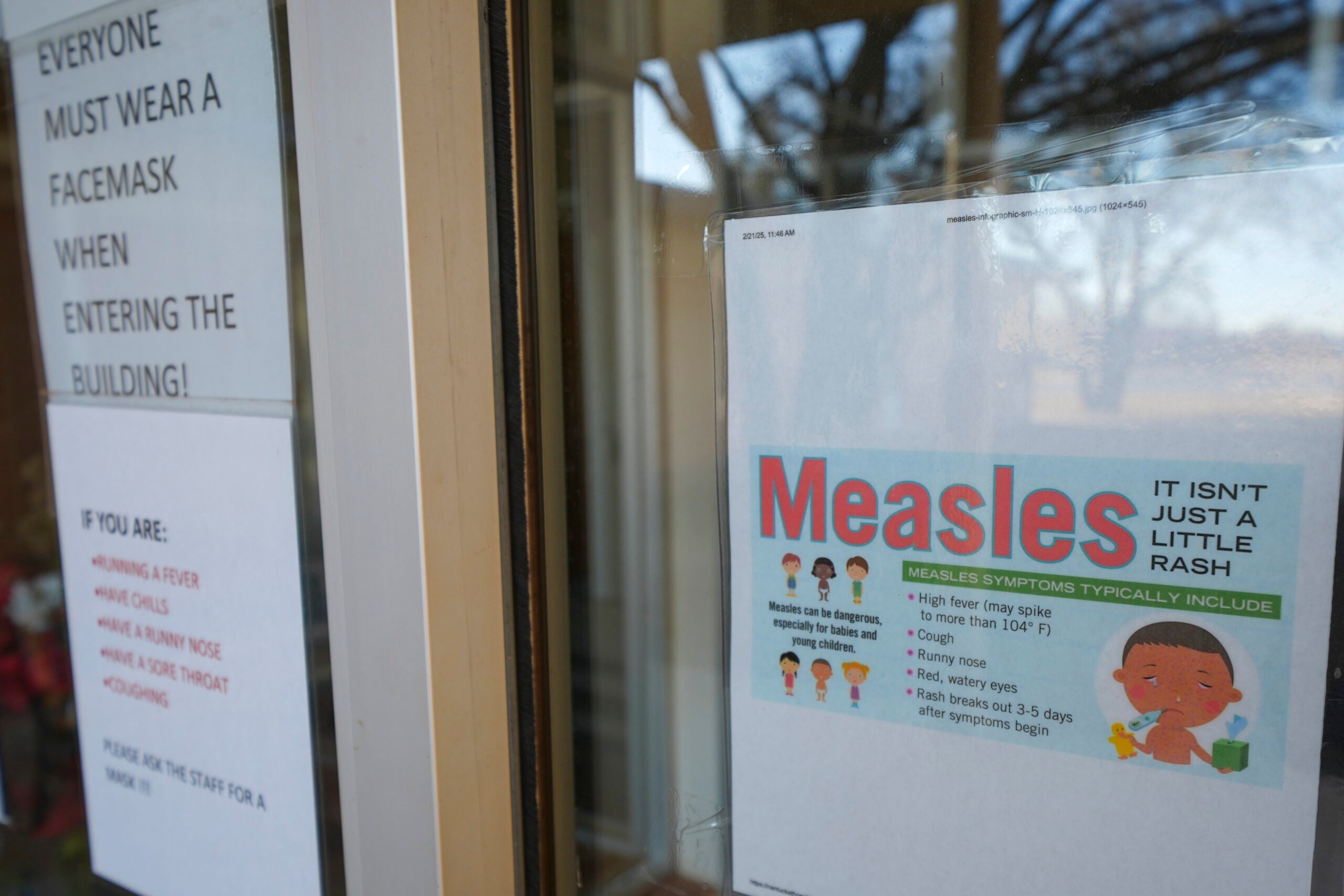State health officials on Tuesday confirmed the first pediatric flu-related death in Wisconsin this winter.
The state Department of Health Services declined to provide more details on the case, including the child’s age. Tom Haupt, DHS’s Influenza Surveillance Coordinator, said on a call with reporters that the child was from western Wisconsin and said there was no evidence that the child had received a vaccine this year.
Haupt said the pediatric death brings the state’s total influenza-related death count to at least 40 people this season.
News with a little more humanity
WPR’s “Wisconsin Today” newsletter keeps you connected to the state you love without feeling overwhelmed. No paywall. No agenda. No corporate filter.
He said Wisconsin sees an average of three to four pediatric deaths during a typical flu season. But those numbers have been down in recent years because of health precautions taken against COVID-19.
Nationwide, there have been 30 pediatric influenza-associated deaths reported so far in the 2022-23 season.
Haupt said all children who are not vaccinated are vulnerable to influenza. But the age range of children most affected by the virus depends on the dominant strain for the year.
“If you have an Influenza A (H3) year, which is what we’re in right now, you tend to have the slightly older children. Whereas if it was Influenza B or Influenza A (H1), it would tend to hit the very young children including infants,” he said.
Haupt said this year’s flu season started early and has been severe. But he said there are some positive signs that the season could also be reaching its peak early.
“While the cases have increased, they’re not increasing at the drastic rate that it has been over the past few weeks,” Haupt said. “So there is hope that we’re getting close to the peak activity and hopefully within a couple of weeks we’ll be on the decline.”
Haupt said the pediatric death should be a wake-up call for more people to get their flu shot, especially before gathering for the holidays or traveling to see family. He said officials are anticipating the number of cases to increase after the holidays. He said people are encouraged to get the vaccine or stay home if they’re feeling sick in order to protect their loved ones.
“The viruses that are spreading around are very similar or are exactly the same as what’s in the vaccine. That gives us hope that we’re going to have a very good vaccine efficacy year,” Haupt said.
He said around 33 percent of Wisconsinites have gotten their flu shot, a decline from last year and a percent that Haupt called “disappointing.”
DHS encourages everyone 6 months and older to get the flu vaccine, especially people who are at greater risk of becoming seriously ill, such as those who are pregnant, age 65 and older, and those with chronic health conditions.
Wisconsin Public Radio, © Copyright 2025, Board of Regents of the University of Wisconsin System and Wisconsin Educational Communications Board.







